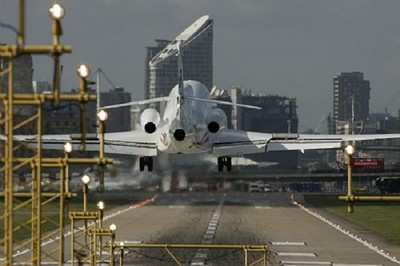Thu, Feb 26, 2009
Advertisement
More News
 Aero-News: Quote of the Day (10.24.25)
Aero-News: Quote of the Day (10.24.25)
“The rapid succession of contracts indicates that the Chinook will continue to play an important role in the US Army’s family-of-systems, particularly in a contested lo>[...]
 ANN's Daily Aero-Linx (10.24.25)
ANN's Daily Aero-Linx (10.24.25)
Aero Linx: African Business Aviation Association (AfBAA) AfBAA is dedicated to promoting the understanding and advantages of Business Aviation across Africa. Our mission centers on>[...]
 NTSB Final Report: Cirrus SR22
NTSB Final Report: Cirrus SR22
Postaccident Examination Revealed That The Right Brake Linings Had Exceeded The Manufacturer’S Serviceable Wear Limit Analysis: The pilot was taxiing from the fixed-base oper>[...]
 Airborne-Flight Training 10.23.25: PanAm Back?, Spirit Cuts, Affordable Expo
Airborne-Flight Training 10.23.25: PanAm Back?, Spirit Cuts, Affordable Expo
Also: USAF Pilots, Advanced Aircrew Academy, ATC Hiring, Hop-A-Jet Sues Pan American is attempting a comeback. Aviation merchant bank AVi8 Air Capital, alongside Pan American Globa>[...]
 Airborne 10.22.25: Rez Takes Plane, DJI v US Drone Ban, HK 747 Cargo Accident
Airborne 10.22.25: Rez Takes Plane, DJI v US Drone Ban, HK 747 Cargo Accident
Also: DHS Under Fire, Air New Zealand, ALPA Praises Bipartisan Bill, Spirit Budget Cuts The Minnesota Pilots Association has issued an advisory regarding overflights of the Red Lak>[...]
blog comments powered by Disqus




